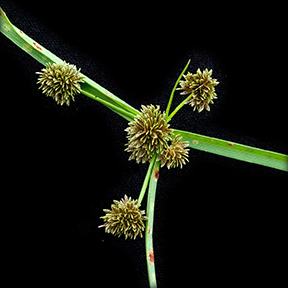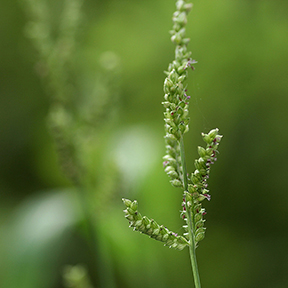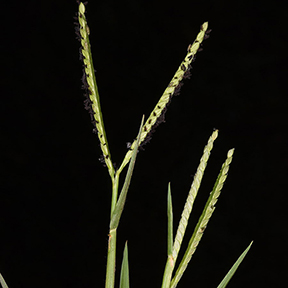
- Address : Bathalagoda, Ibbagamuwa, Sri Lanka
- E- Mail : rrdi@doa.gov.lk
- Telephone :(+94) 037-2258561
- Fax :(+94) 037-2259881
RICE - the staple food - weed management
Chemical Weed Management: Goods and Bads of Herbicides
Merits
- can be recommended for adverse soil and climatic conditions.
- can control weeds even before they emerge from the soil which is difficult with other methods.
- are effective on weeds, which resemble crops, which may escape in manual weeding.
- highly suitable for broadcasted and closely spaced crops.
- control weeds without any injury to the root system of the associated standing.
- reduce the need for pre- planting tillage.
- control many perennial weed species.
- control weeds in the field itself whereas mechanical method may lead to dispersal of weed species through seeds/ vegetative propagules.
- relatively cheap, profitable where labour is scarce and expensive.
- highly economical.
- easy to use, less time consuming.
Demerits
- ground water may get contaminated due to improper use.
- some are non-biodegradable for a long period of time.
- soil microbial diversity may get affected, some species may be completely eliminated. This will affect edaphic ecological balance.
- biological activities such as N2 fixation may be inhibited.
- cause pesticide drift effect to the adjoining field
- requires certain technical knowledge for calibration.
- some are highly persistant in the environment, leave residues for certain time period.
- some are expensive.
- herbicides are specific to certain plant types, universal herbicides could have an impact on the crop.
- vary greatly in chemical composition and therefore, the degree of environmental threat might be different.
- change plant community in a particular habitat, thereby changes the animal species that inhabit the environment (biodiversity changes).
- contaminated plants may be eaten by the herbivores, accumulate in food chains being toxic to all animals (incuding human).
- direct exposure to herbicides may cause health problems such as
- heart congestion
- lung and kidney damage
- low blood pressure
- muscle damage
- weight loss
- adrenal glands damage
- infertility
- cancers (brain, prostrate, stomach and lip, leukemia, skin melanomas, etc)
- may have damages on crops,leading to reduced yields.
- may lead to herbicide resistant biotypes of weeds.
Lorem ipsum dolor sit amet, consectetur adipiscing elit. Ut elit tellus, luctus nec ullamcorper mattis, pulvinar dapibus leo.





Herbicide Drift Effect
Pesticide spray drift is the movement of pesticide dust or droplets through the air at the time of application or soon after, to any site other than the area intended.

